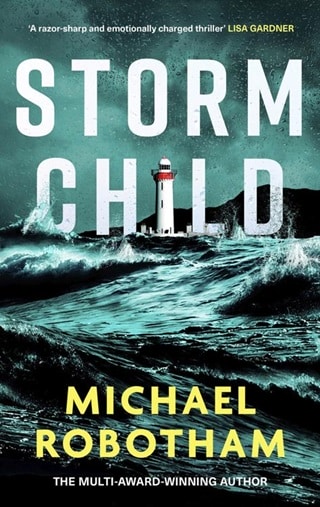14 Cyrus
14
Evie is sleeping on her side on the sofa, knees together, lips parted, hair tucked behind her ear, showing her multiple piercings and jewellery. I have never had any desire to pierce my body with metal studs, or rings or hoops, but I have no problem with needles. My skin is a tapestry of ink drawings created by a million tiny pricks made by hand, each forming a picture in a tapestry of pain.
Ogilvy has allowed us to stay together in a small conference room next to where the detectives are working. Periodically, someone arrives to make tea or coffee or to take drinks from the fridge, but it has been quiet since midnight.
Evie wakes and sits up, plunging her hands into her hair, lifting it from her neck and tying it into a bundle with a hairband. I'm always amazed at how women can do that with such skill and grace.
‘I was having a dream,' she says.
‘About what?'
‘Mama and Agnesa.'
‘You want to talk about it?'
She hesitates.
‘You recognised Finn Radford,' I say.
She nods, biting her bottom lip, leaving a mark. The silence seems to add to her frustration. She's getting closer to remembering what happened yet is terrified of what it might mean. Redemption. Relief. More trauma. Greater pain.
After my parents and sisters died, I was passed between psychiatrists, therapists and counsellors, who spent months asking me about my innermost thoughts, when I simply wanted to be left alone. Later, as a psychologist, I came to understand that talking about trauma can be like sunlight, a disinfectant that diminishes the power of harrowing events. But there is another, equally possible, outcome, where talking turns the unspeakable into words, energising rather than neutralising trauma, trapping a survivor instead of freeing them.
Evie has all the hallmarks of PTSD – the flashbacks, anxiety, avoidance, anger – but she's also incredibly resilient and self-contained. I want to believe she can survive her memories. I need it to be so.
Getting up from the sofa, she stretches like a cat and walks to the window, her arms wrapped around her chest.
‘Are you cold?'
‘No.' She lifts her eyes to mine. ‘You said there was some way you could help me remember.'
‘A cognitive interview?'
‘Use normal words.'
‘OK, but first let me explain how our memories work. We gather information with all our senses, which is coded and stored in our minds. It could be a smell, or a sound, or a face, or an object, which allows us to retrieve the memory later. Very rarely does it come back all at once. We recall one piece of information, which helps us get the next piece and the next piece.
‘We also have different levels of memory. Shallow and deep. I can't remember what I had for dinner two nights ago, but I can remember the first girl I kissed, her name, her strawberry-flavoured lip-gloss, the smell of her hair. Deep memories are bedrock, but they can still be hidden away because of trauma or illness or injury.'
‘How do I get them back?'
‘It begins with one small detail, a moment, and we build from there. Do you want to try?'
She nods and returns to the sofa. I ask her to close her eyes and take a deep breath and to feel the air filling every corner of her lungs.
‘Exhale. Inhale. Exhale. Inhale. Feel the coolness of each breath in your nostrils. Feel your heartbeat slow.'
Evie has her head tilted back and her chest rises and falls.
‘Now I want you to think back to the trawler. The movement. The noise. The smell. The voices . . .'
‘It was cold,' she whispers.
‘How did you stay warm?'
‘We wore all our clothes. Layers. Socks upon socks. Socks on my hands.'
‘What clothes? Describe them.'
‘I had a long dress and a sweater.'
‘Tell me about the dress.'
‘It was blue and green and had buttons down the front.'
‘How many buttons?'
‘I can't remember.'
‘Picture the dress. Imagine putting it on. Doing up the buttons.'
She counts. ‘One . . . two . . . three. Four buttons.'
I notice a change in Evie. Her eyelids begin to flutter. Her hands close into fists. Her knuckles whiten. Each breath is ragged. She's back there, a child again, all at sea . . .
 Fullepub
Fullepub 



